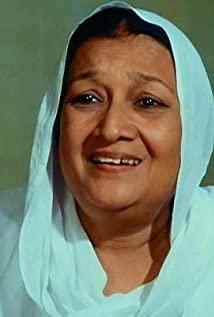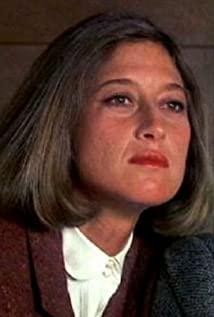On the surface, what happened in the cave is the core of the whole conflict. Many people say that both the novel and the movie deliberately blur the specific situation in the cave, which is a kind of blank, so that everyone can have free imagination. space. And I think the intention to avoid what happened in the cave is to express that the opposing sides of Britain and India actually each carry their own established positions and dissatisfaction with the other. Anyway, to outsiders, the truth of the matter is a Rashomon-style situation that cannot be determined, as long as you try to suppress the other party to win the case. So the truth is not important at all, the director just wants to show that what the two sides are pursuing is the interests and face of their own group in the conflict. Therefore, the British side will propose that the doctor is a widower who has sexual needs and will go to prostitutes. He believes that people of color have admiration and desire for white people. They think that the doctor spends a lot of money to plan for Miss Yoggs and Mrs. Moore to travel to the cave. In order to find an opportunity to violate it. The actual basis of the British side is the victim's one-sided statement, and the rest all come from the subjective negative impression of the Indians. In the same way, when the Indian side couldn't know whether the doctor had actually violated Miss Guss, the group of people held the doctor as a hero and supported him unconditionally. It seems that even if the doctor really violated the British, it would be regarded as the light of the nation. Accept that he was jailed. The only argument that the Indian side can put forward is that Miss Garth is ugly and not attractive to Indians. Other than that, all the defense lawyers can do is lose their temper and incite the national sentiment of Indians inside and outside the courtroom to pressure the judges to decide the case.
The director is to reflect the irreconcilable national contradictions of India under British rule through the mutual attack of the two sides in the court with no bottom line and ethnic hatred. And pro-Indian British people like the principal and Mrs. Moore, and pro-British Indians like the professor, created some special cases that were separated from the opposite sides, making the film more social.
But judging from the story, Miss Gus and the doctor are the heartbreakers of this whole incident, the characters and the logic before and after are a bit difficult to explain. From the beginning of the film, Mrs. Moore and Miss Goss have a good impression of Indian culture and Indians, even when the judge's son and other British people show contempt for Indians, they both disagree. They really want to make friends with Indians and have a good in-depth tour of India. The doctor also had respect and goodwill towards the British at the beginning, especially for the British who had just come to India, because their attitude towards Indians would be better, unlike some British people who had stayed for a long time and became bossy. The doctor especially likes the principal precisely because he is sincere towards the Indians. The doctor invited a few Britons to travel at a scale far beyond his own financial capacity, which seemed to be a kind of friendship, a passion rather than a very utilitarian speculation. At most, I think about getting along well with foreigners, having a few more British friends, and then having a bright face on my face. This is also human nature.
Under such circumstances, if Miss Guss was not really violated by the doctor, or clearly felt his unruly intentions and dangers, how could she have fled from the mountain and filed an accusation of assault against the doctor in the first place Woolen cloth? Is it really heatstroke or evil? However, heatstroke and evil are all said by the doctor himself, showing special innocence and confusion. In fact, he knows the real situation best. However, the director twice filmed the doctor calling Miss Gess at the entrance of the cave. His voice and eyes were full of sincerity and concern, without a trace of evil, so the truth of the whole thing was deliberately hidden. If Miss Guth could recall the scene at the entrance of the cave, add some eager expressions from the doctor, and the scene of stepping into the cave, the logic of the story would be much clearer. Now the scene in the play shows that the doctor is really innocent, while Miss Guth is an inconsistent and capricious lunatic.
When Miss Guss stated the case, she said that her question may have caused the doctor to have misunderstanding and impulse. And the follow-up result must be that the impulse turns into action, and the invasion of Miss Guss is carried out. At the time of the assault, she fled because of an unexpected shock, and her emotions were completely broken. Her testimony must be true, and the reason why Miss Guth finally retracted her confession was that she calmed down and felt that she had a good impression of India and the doctor. He shouldn't have ruined his life because of his impulsive impulse, and aroused the contradiction and confrontation between the British and Indian races, which she didn't want to see, so she had to bear the grievances herself. After the doctor clears the suspicion, he expresses his anger to make others believe that he is innocent. Only consider your own image and ignore Miss Guth's situation. Afterwards, she naturally couldn't face Miss Gus and the principal. As an anti-British national hero of the Indians, he naturally has no way to continue in the environment under British rule in the future, so he had to move to Srinagar to start a new life.
View more about A Passage to India reviews











